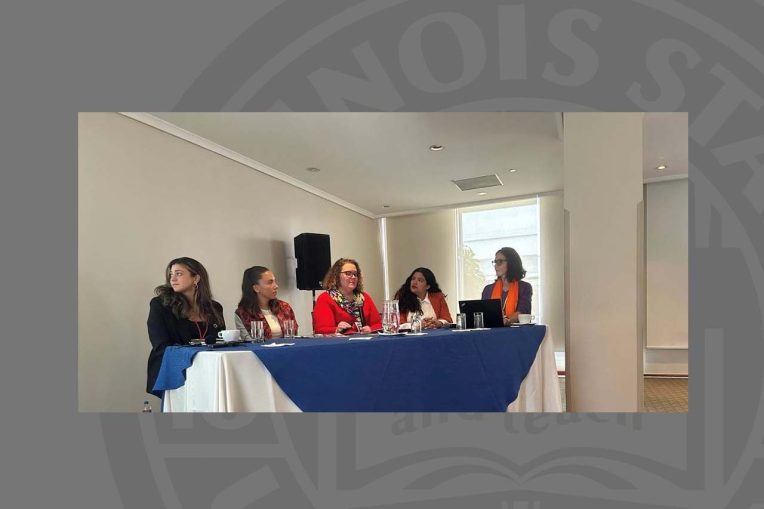Dawn Beichner-Thomas, professor in the Criminal Justice Sciences Department and in the Women’s, Gender, and Sexuality Program, was an invited speaker at UN Women’s 6th Safe Cities and Safe Public Spaces Global Leaders’ Public Forum. The forum, held in Quito, Ecuador from November 28-30, brought together government leaders and experts from more than twenty countries worldwide. There were representatives from women and girls/women’s rights organizations, national and local governments, research institutions, the private sector, and partners from global women’s safety networks.
“The forum was both enlightening and empowering,” said Beichner-Thomas. “Though our global pursuits for gender equality and an end to violence against women and girls are far from being achieved, knowing that we are all working to affect change in our respective areas of the world is inspiring. I made valuable connections with new colleagues from around the world, across a broad range of interest areas.”
Beichner-Thomas’s presentation centered on the importance of young feminist involvement in research and action projects designed to end violence against women and girls worldwide. Building on UN Women’s Generation Equality campaign and the Youth Action Plan, Beichner-Thomas discussed the importance of using intersectional, multi-sectoral, and intergenerational strategies for gendered approaches to safety. Among the strategies that she discussed were strategic partnerships among non-governmental organizations, governments, and universities.
“Young feminists are innovators and bring many strengths to our action projects. We need to make them core partners in all that we do,” said Beichner-Thomas. “Not only are they critical in advancing technology and bridging the gendered, global digital divide, they are instrumental in building community cohesion and awareness. Another strength is that they are uniquely poised to support and inspire young people and foster connectivity among them.”
Beichner-Thomas has been a faculty member at ISU for twenty years. She is a UN Representative for the World Society of Victimology, an international non-governmental organization that works to advance victimological research and practices around the world, and chair of the American Society of Criminology’s Division on International Criminology.



